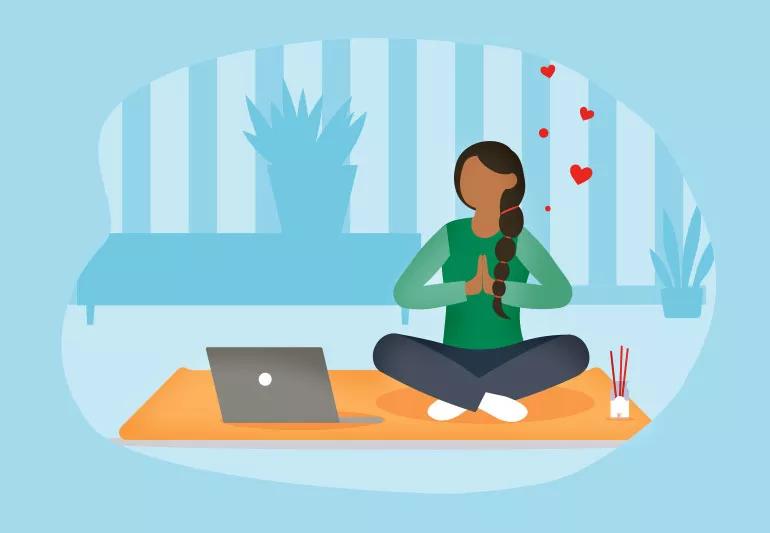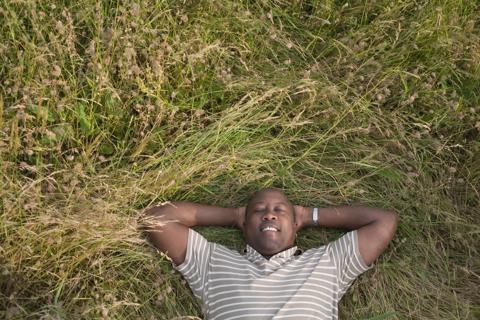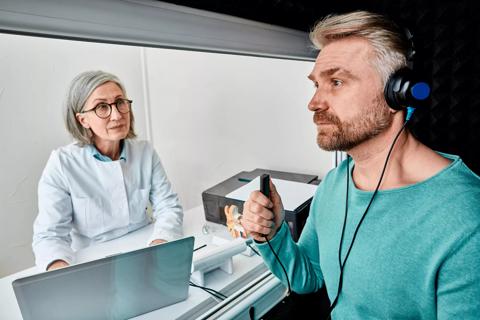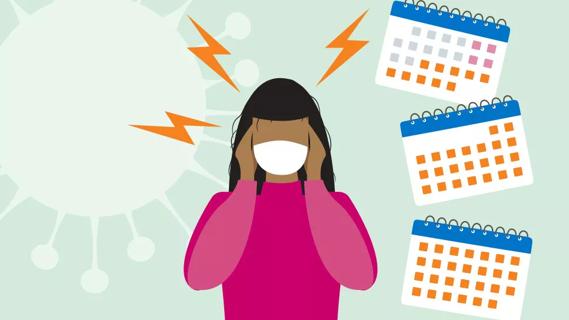Learning to cope as COVID-19 continues to linger

As the calendar gives way to spring, the world is entering its third year of the COVID-19 pandemic. And while the omicron variant surge that rocked the United States over the holiday season has faded, we’re still feeling the aftershocks.
Cleveland Clinic is a non-profit academic medical center. Advertising on our site helps support our mission. We do not endorse non-Cleveland Clinic products or services. Policy
After all, the pandemic is still going, even with vaccines and boosters widely available for everyone age 5 and older. That means we’re also still experiencing the mental health issues that come from isolation, the disruption to our lives and anxiety over an illness.
There are ways to cope, though, as we wait — and hope — that we’re closer to the end of the pandemic. To get a better understanding of where things stand and what we can do, we spoke to psychologist Dawn Potter, PsyD.
After two full years of COVID-19 dominating our lives, it’s hard to imagine giving the pandemic even more energy. While it’s the case for many, Dr. Potter points out it’s all about how the pandemic is directly affecting you.
“Whether or not the pandemic is top of mind for you depends on what’s going on for you,” she says. “It’s possible that for many, the current status quo means they’re not thinking about it too much. But depending on variants, surges or even personal circumstances, it may be a top priority for others.”
In other words, if you find yourself still dwelling on the pandemic, that’s OK because you’re hardly alone. And keeping social distancing and masking practices in place is still a good idea to protect yourself as much as possible.
The unprecedented nature of the pandemic — the anxiety it caused and subsequent things like isolation — had a big impact on the mental health of many people. “From quarantining to switching to school and work from home at such a broad level, it was a time of change and uncertainty,” notes Dr. Potter.
Humans are a social species, she adds, so it’s been a tough few years even for those who haven’t dealt with clinical depression. “People were feeling more lonely and stressed and couldn’t cope in the ways they were used to,” she adds.
The silver lining, she says, is that the universal aspect of it all also made many more people open to talking about mental health and the challenges they faced.
One positive that has come out of this ordeal is a rise in resilience and ability to adapt. A survey conducted by Cleveland Clinic in partnership with Parade magazine in the fall of 2021 found that 60% of respondents felt depressed or anxious due to the pandemic. But the survey also found 82% of respondents felt mental health is just as important as physical health, and 74% said the pandemic has left them feeling more confident of handling future challenges.
Respondents also said they were emotionally stronger because their experiences during the pandemic resulted in:
“People are developing new ways to cope and feel connected to other people,” says Dr. Potter. “And acceptance is part of adapting, which is helpful since change is constant and has been during this pandemic.”
There are a lot of variables when it comes to coping. Dr. Potter points out that feelings can ebb and flow as COVID-19 case rates fluctuate and a person’s individual situation changes. “It also depends on a person’s coping style,” she says. “But there are different areas that we can all think about when learning to cope.”
Those areas are:
It’s also important to keep these things in mind as we learn to cope with the frustrations raised by others around us. “We need to find a balance where we can be assertive for ourselves and not compromise our values while allowing others the freedom to express their values in a respectful conversation.”
As cases drop again in the wake of the omicron surge, Dr. Potter says there’s good reason to hope for things to get better as we start the third year of the pandemic. “There’s ongoing research to help our fight against COVID-19, such as more effective treatments and vaccines for young children under the age of 5,” she assures.
The important thing to keep in mind, she advises, is that things fluctuate. “Cases go up and come down, we develop new treatments, we see symptoms change based on variants. But things are not always getting worse,” she notes. “They change over time and things can improve, too.”
If that emotional rollercoaster goes up, Dr. Potter says, it’s going to also come down. “The key is balance, thinking about what’s going on in the short term. Again, focus on what you can control and that there’s as much a chance as things changing for the better.”
Learn more about our editorial process.

An increased risk of blood clots can last for nearly a year after a COVID-19 diagnosis

Connecting with the Earth and its energy might improve your mental and physical health — but it’s not a cure-all

Research suggests the effect of the supplement, particularly for prostate health, may not deliver believed benefits

COVID-19 may be associated with tinnitus, but research is still ongoing

A pro-level laugh can release good-for-you oxytocin, dopamine and endorphins

Genetics, metabolism and hormonal fluctuations can all make weight loss more difficult

The short answer: It’s complicated, but the basic care precautions still prevail, like washing your hands and isolating if you’re sick

They can feel like a typical headache or a migraine headache, but the pain can last for weeks to months

Your metabolism may torch 1,300 to 2,000 calories daily with no activity

A gentle touch in all the right places may help drain your sinuses